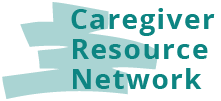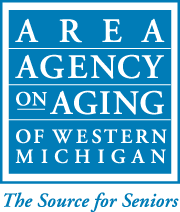Understanding Options to Maintain Independence

Understanding Options to Maintain Independence
By: Stephanie Hecksel, LMSW
Outreach Specialist with the Area Agency on Aging of Western Michigan
When you think of “independence,” especially in terms of getting older, what comes to mind? How do you define “independence” as it relates to your family, where you live, and assistance you may receive? Many people might think about getting older and what the future might hold for them, and there are different perspectives on how to view this topic. One common theme is that individuals would like to remain as independent as possible (whether that means staying in their own homes, having caregivers assist them with tasks that become more difficult, or exploring various resources that will help them remain safe, happy, and healthy).
As people get older, they may require more assistance with everyday tasks, such as housekeeping, meal preparation, and personal care needs like bathing. How do people know where to go for when help is needed? Further, how can individuals and their caregivers prepare for the time when more help is needed? The following provides a brief explanation of the resources individuals may pursue when they are in need of more assistance.
- Duty Home Care: This is care that is typically provided by an agency. Common types of private duty care services are personal care, homemaking, meal preparation, and medication reminders. Agencies may vary in the amount of care that can be offered as well as how much their hourly rates are. Some agencies may accept insurance, such as Medicare or Medicare Advantage plans. Insurance has specific criteria that a person must meet in order to receive care covered by their plan. It is a good idea for people to talk to a potential agency about the potential cost they may face.
For those whose insurance does not cover ongoing care needs or for those who have limited personal resources, funded programs may be a beneficial option. These programs typically have objective criteria individuals must meet relating to finances and amount of care needed in order to be considered eligible. The types of services offered through these programs vary based on the individual’s situation and the program guidelines. Funded services may not always be immediately accessible, and individuals are encouraged to be proactive in learning about the resources available to them. The next categories review some of the funded programs available.
Care Management: offers personal care, homemaking, and/or respite to individuals age 60 and up who live in an independent setting and need some assistance meeting their ongoing needs.
MI Choice Medicaid Waiver: strives to help prevent or delay nursing home placement for an individual who would like to live in the least restrictive setting as possible. Waiver is a long-term care program offered to individuals who, without ongoing services, may otherwise reside in a nursing home setting.
PACE: PACE is an all-inclusive program geared toward individuals who again may otherwise qualify to reside in a nursing home setting. Once enrolled in the program, individuals will benefit from PACE being the provider for all of the things they may need: primary care, dental, vision, podiatry, pharmacy, adult day center, and transportation.
Adult Day Health and Respite: Adult day health centers are offered in some areas and can have a medical focus, social focus, or both. Individuals can go to the center where the staff may offer some personal care as well as meals and social activities. This can be an option for someone who cannot be left alone because of safety risks but may not have a caregiver that can be present with them at home. It may also allow a caregiver to get a break from caregiving and focus on other tasks that need to be done. Respite is yet another option that can help caregivers get a break from their caregiving duties while ensuring that their loved one’s needs will be met.
- Home Help: This program helps to meet the personal care needs as well as homemaking needs of an individual who meets criteria per the Michigan Department of Health and Human Services (MDHHS). There are income guidelines and the person must be eligible for Medicaid in order to be considered for this program. Often times, a person may have a paid caregiver in place to assist with ongoing needs.
The next Family Caregiver University class will be held on Thursday, April 26, 2018 and will focus on Understanding Options to Maintain Independence. The class will provide more detailed information on the programs listed, insurance coverage and myths, and ideas for caregivers. A four-person panel with experts from the field will lead the discussion to help class attendees understand these different options and how they are applicable to their unique situations.
For a full list of Family Caregiver University classes provided by the Caregiver Resource Network, please call (888) 456-5664 or visit www.caregiverresource.net.
Caregiver’s Corner is provided as a public service of the Caregiver Resource Network. The Caregiver Resource Network is a collaboration of West Michigan organizations dedicated to providing for the needs and welfare of family and professional caregivers within the community. Funded by the Area Agency on Aging of Western Michigan with Older American’s Act Title IIIE, Family Caregiver Support funds.
Tagged:

